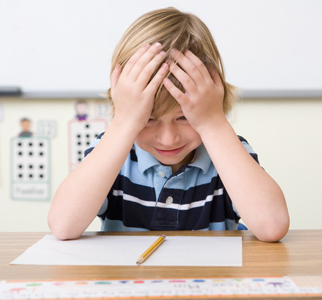Could Your Child Have a Learning Disability?
It’s normal for kids to find some school subjects harder than others. And it’s common for them to struggle a bit when learning something new. But if learning troubles become a lasting pattern, you might start to suspect a learning disability.

Reading, writing, and doing math are the basic building blocks of school success. Learning disabilities affect how your child performs these essential skills. The learning issues aren’t tied to intelligence—even bright kids can have learning disabilities. Instead, they’re caused by problems with how the brain handles information.
What to watch for
There are various types of learning disabilities. Here are typical signs of three common ones.
Dyslexia: difficulties with reading and spelling
Trouble recognizing and spelling words that are known
Difficulty reading with accuracy and ease
Often finding it hard to understand what other people say
Dyscalculia: difficulties with arithmetic
Trouble grasping arithmetic concepts, such as fractions and negative numbers
Difficulty understanding math word problems
Mistakes when making change for cash
Often struggling with the time sequence of events
Dysgraphia: difficulties with handwriting
Tension and an awkward position when writing by hand
Trouble forming letters or writing within a designated space
Often having a hard time getting ideas down on paper
Not every child with these signs has a learning disability. Developmental delays, vision or hearing problems, emotional disorders, and medical illnesses can also affect learning. Your child’s doctor and school can help you determine what’s going on.
Consult your child's healthcare provider
Talk with your child’s healthcare provider about your concerns. He or she can look for health problems that might be playing a role. For example, let’s say your child has a chronic health condition, such as asthma or type 1 diabetes. If the condition isn’t well controlled, that could lead to frequent absences and falling grades.
At times, the provider may refer your child to other specialists for further evaluation. For instance, your child might see a neurologist, psychologist, or speech pathologist.
Contact your child’s school
Share what you discover with your child’s school. If you think your child may have a learning disability, ask for an educational assessment. This type of assessment can determine whether your child qualifies for special education services. Such services help your child learn to build on strengths and compensate for weaknesses.
A learning disability is a lifelong challenge. It can’t be cured, but its impact can be lessened. With support from family, healthcare providers, and teachers, your child with a learning disability can thrive at school and beyond.
Connect with us:
Download our App: